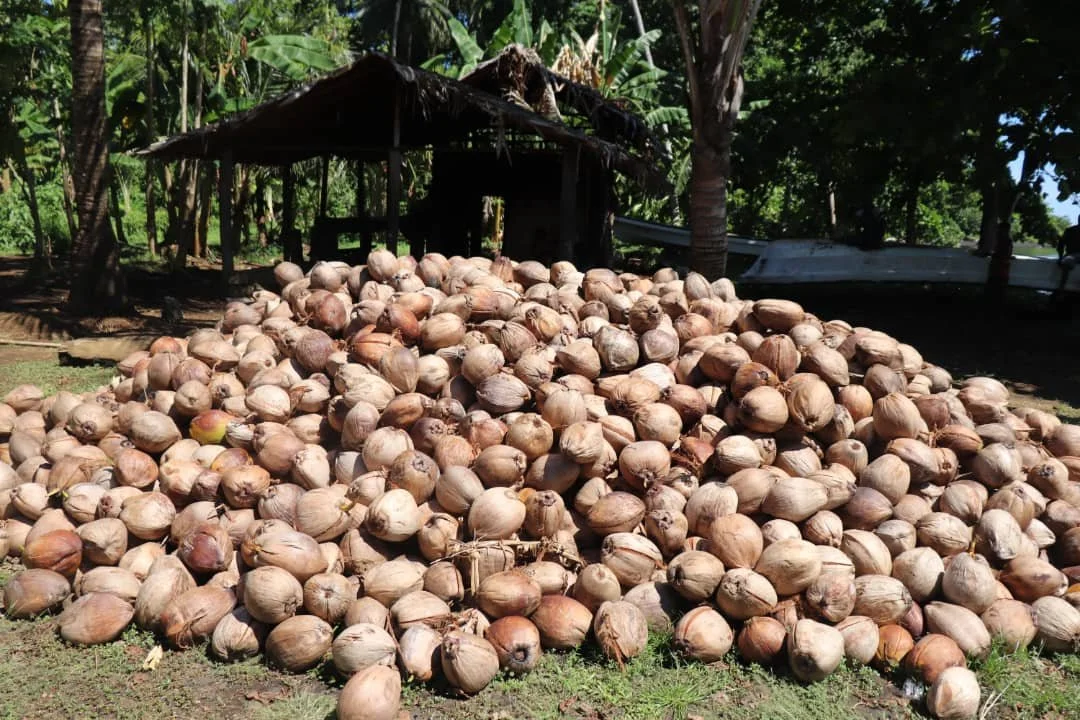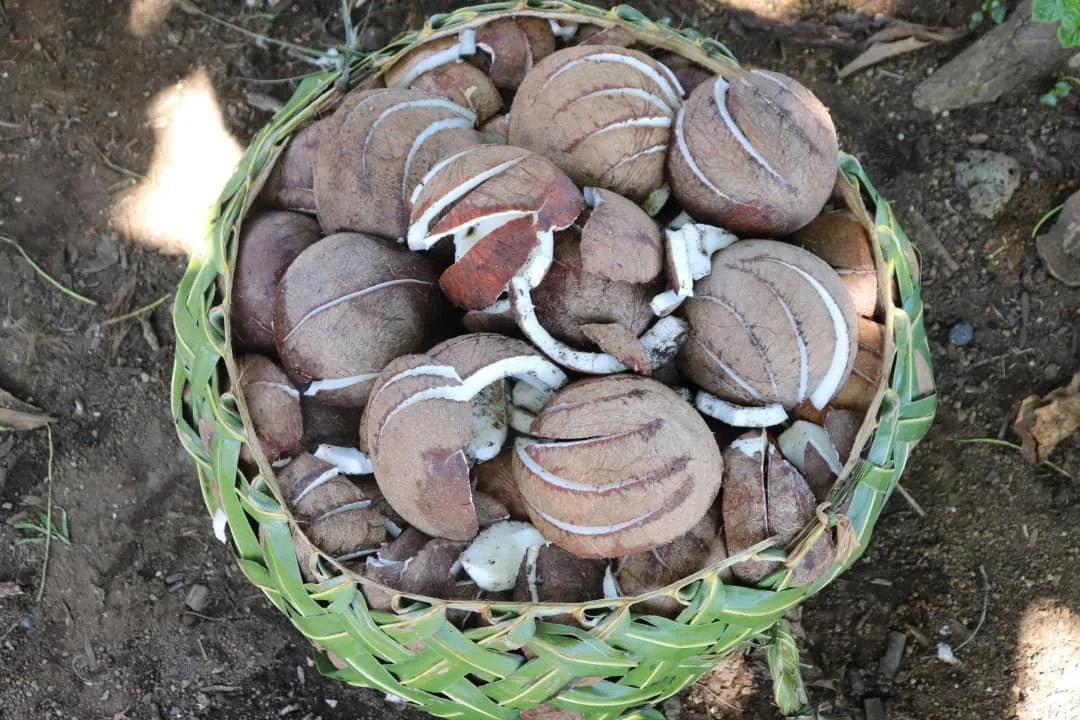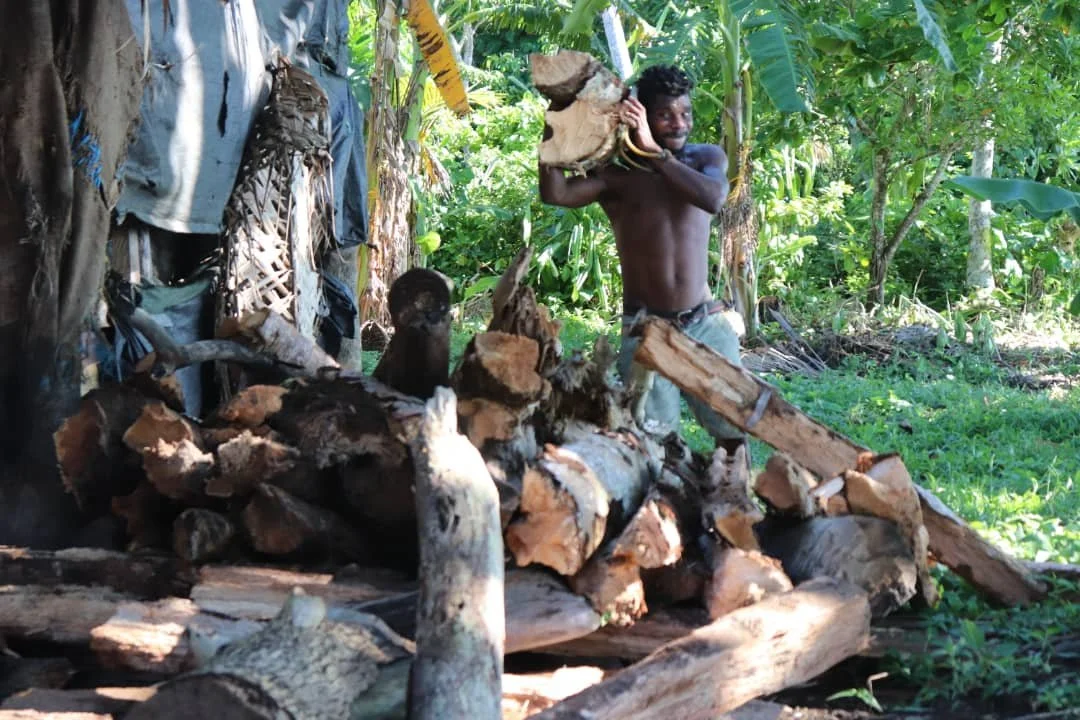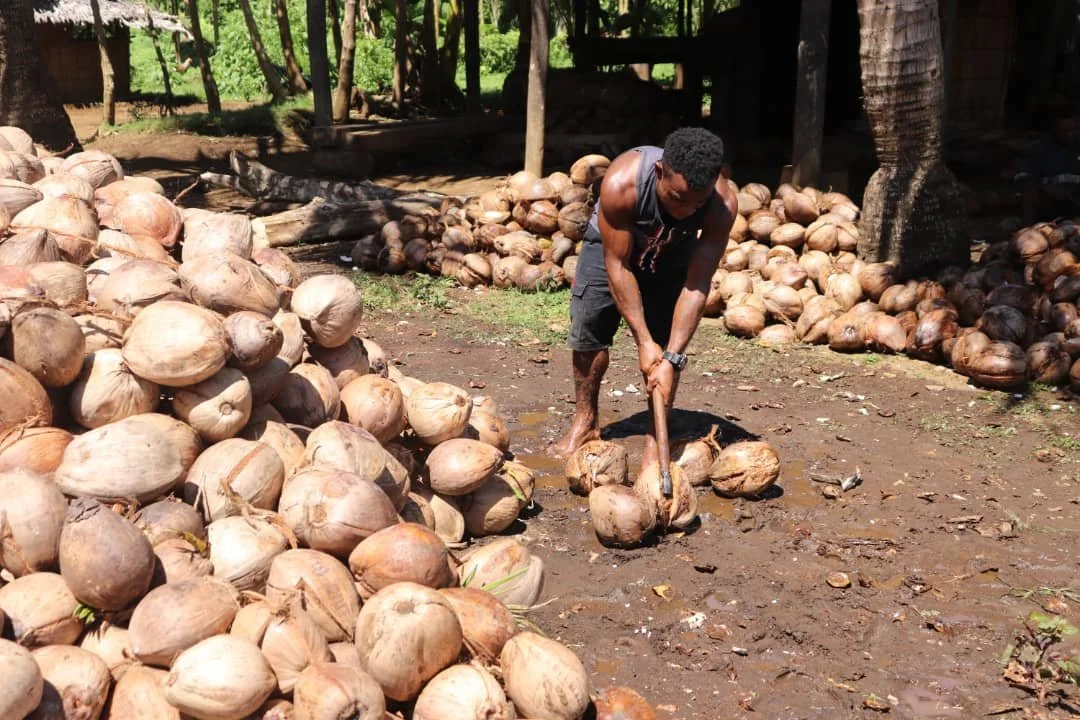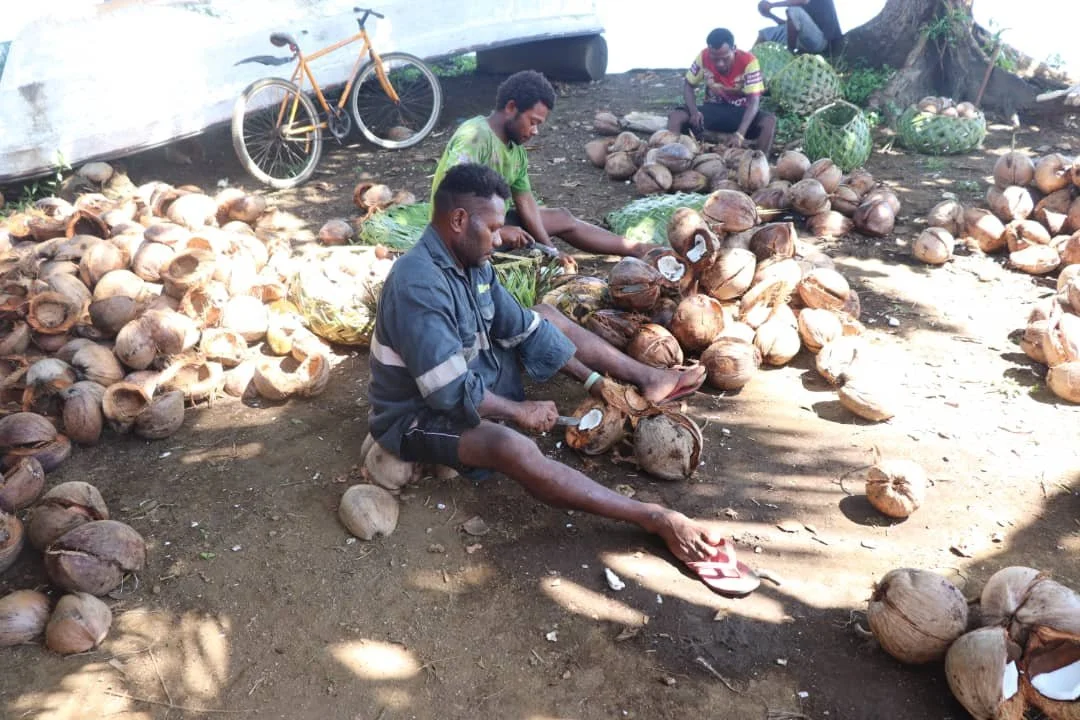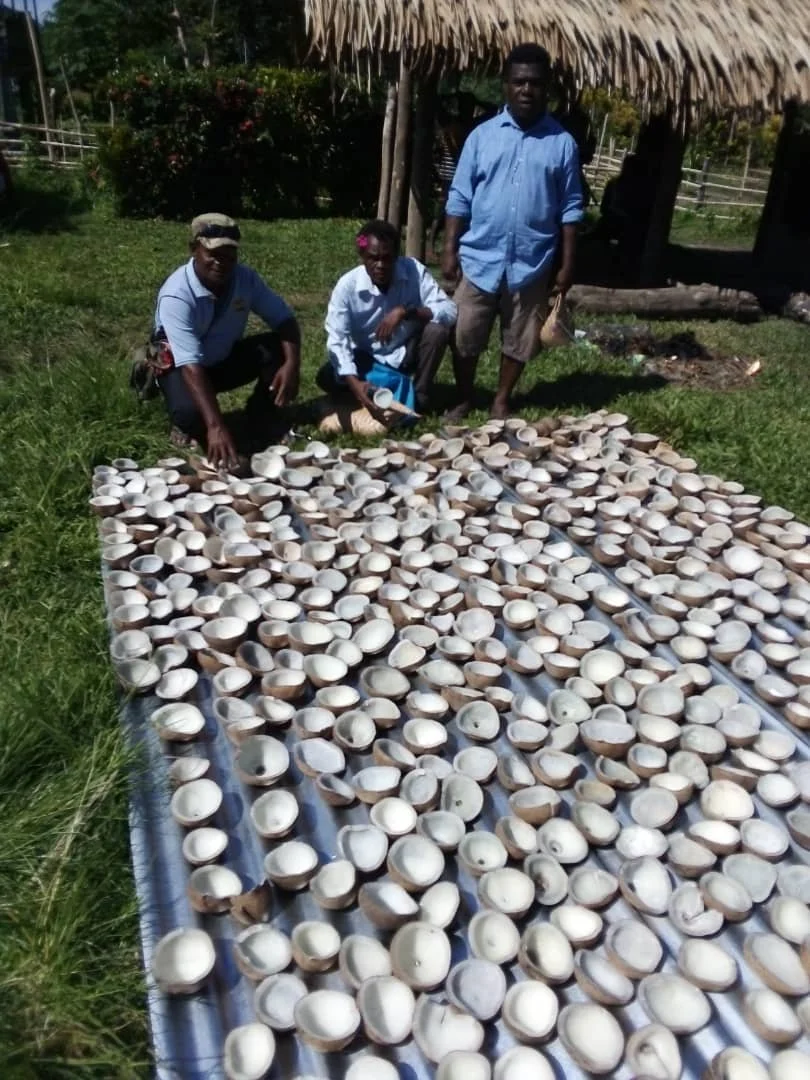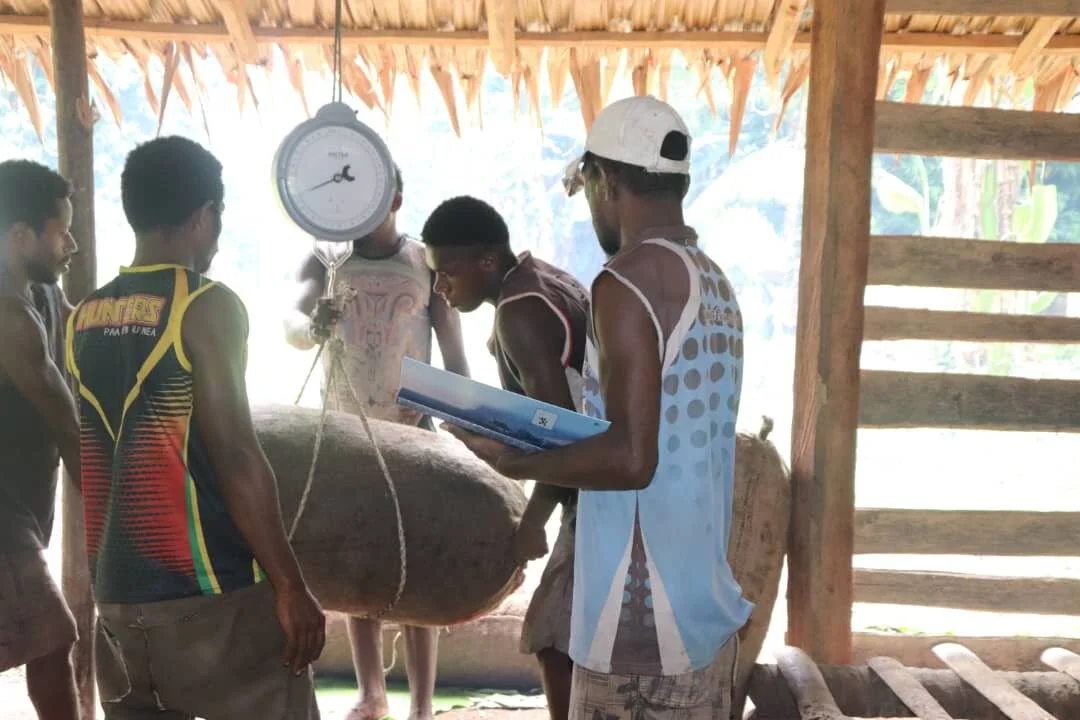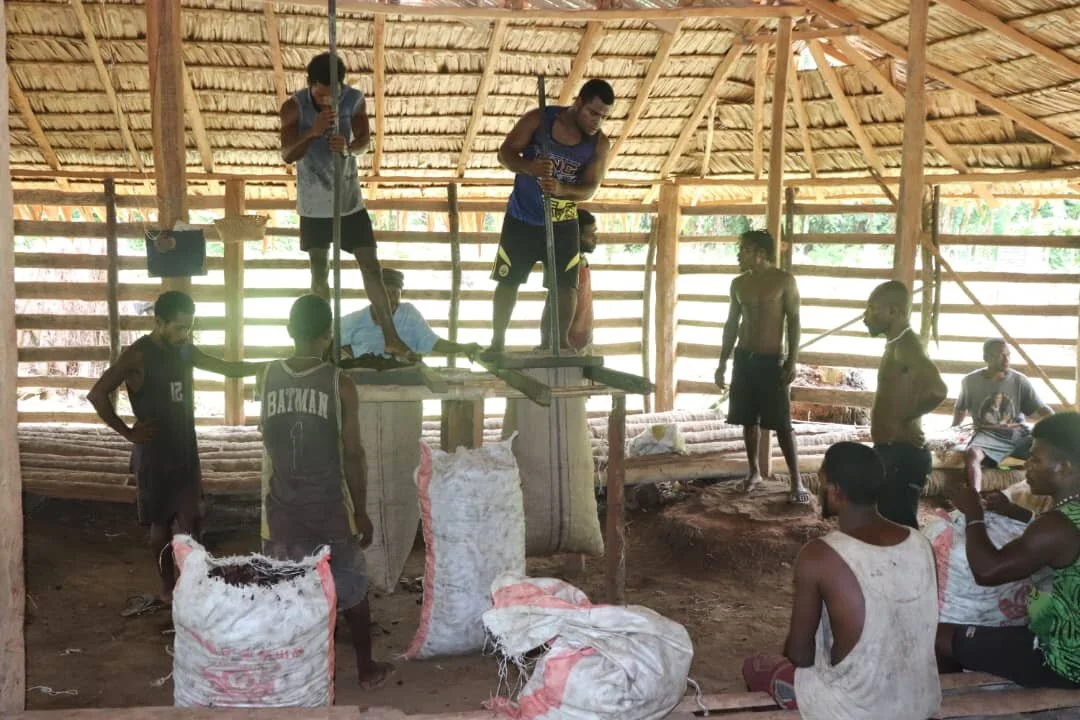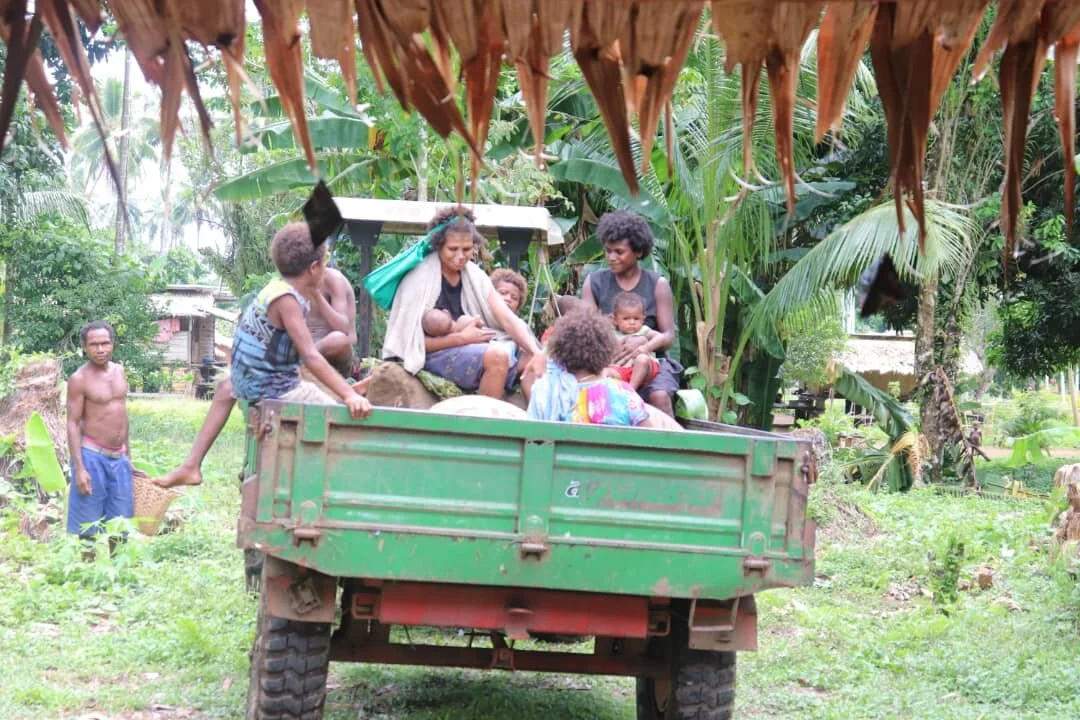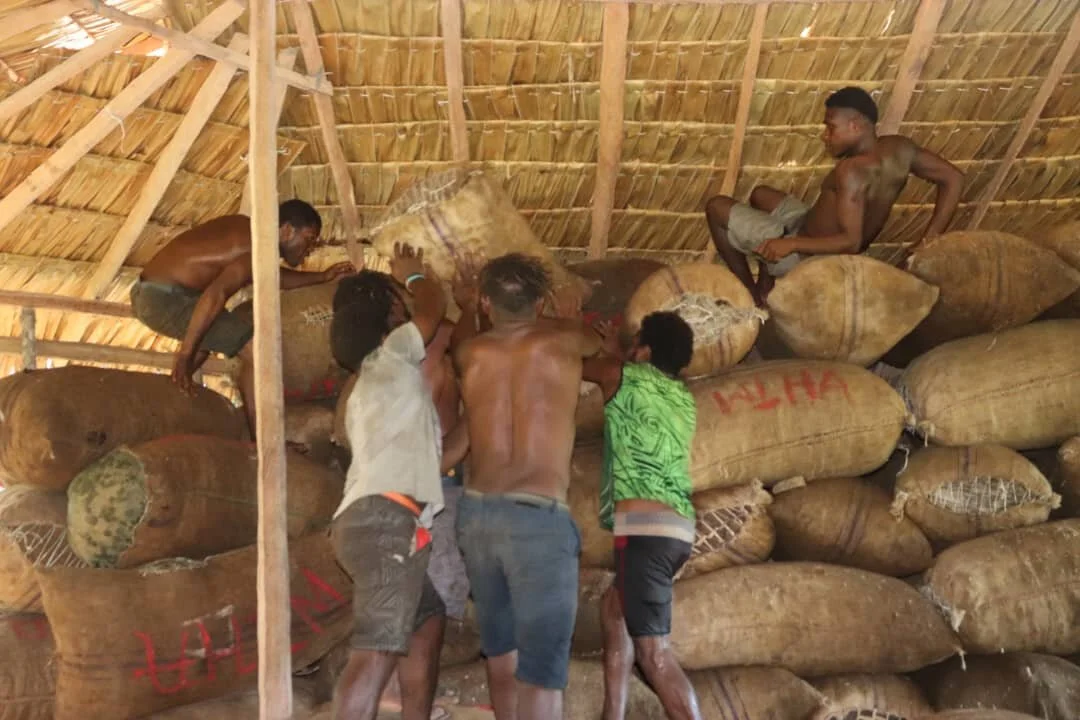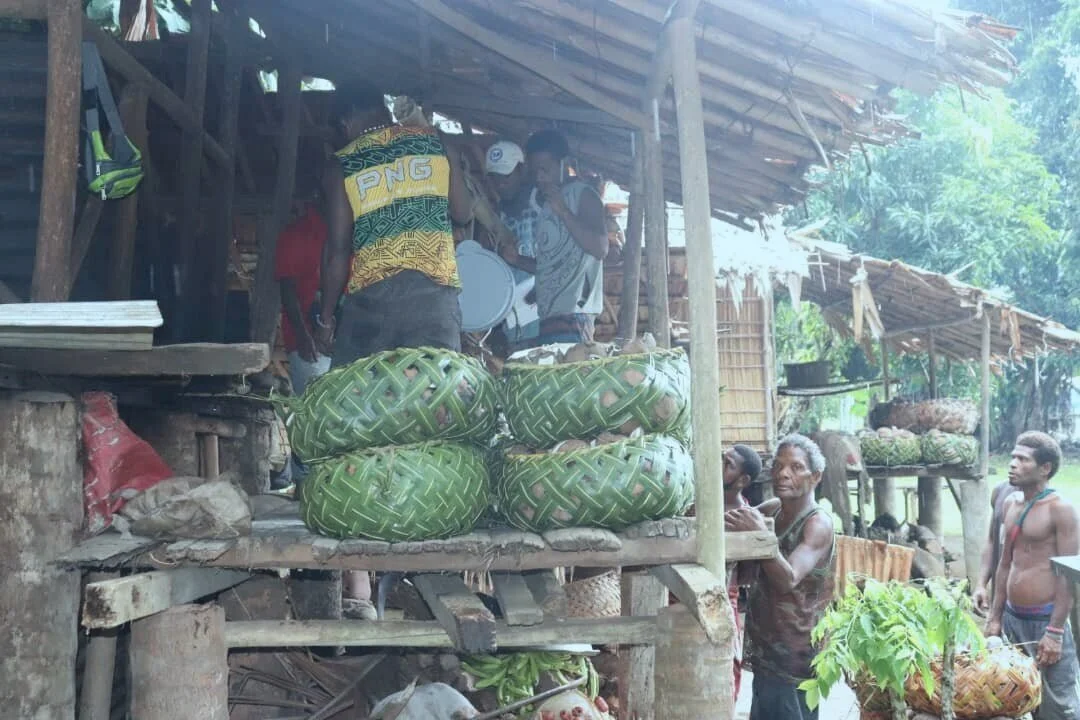The coconut "Tree of life". This is so true for coastal and island communities of the world.
The coconut tree provides shelter, warmth, food, utensils, building materials, clothing, oil for - cosmetics, lanterns, cooking, and health products. The introduction of colonisation provided a means of obtaining something else though, a different medium of exchange. This new wealth though was for some of the very few. The islands people whose land, labour and sweat went into the cultivation of the coconut on the land that had been worked for millennial before colonisation, saw only a token of the cash that was earned from their efforts.
Now they were able to spend the wages they earned at the trade stores set up by the colonialists and buy a machete, metal axe, kerosene, processed foods, and other western influenced commodities.
In the beginning, on Witu islands, it was the Germans who first came to start the plantations then later the Australians. How the land was bought, leased, or requisitioned, we are not sure. We do think though that the lands full worth was not compensated for to the people of the islands who now had lost the use of most of their land. The Germans had rows of germinating coconut planted, the smokehouses, and wharves built, and train tracks laid.
Copra (smoke-dried coconut) was the product wanted, the price per kilo was good and the island soon became a prime producer of the region. The copra producers prospered and the locals became more familiar with western ways and became dependant on the wages they collected. Their wages being used for many items, now bought from the local trade stores, but once made or grown.
Today the lands, in most part have been returned to the locals and they are now trying to again earn an income from what has been a long-standing industry. The work is just as hard and dirty as it has always been. It is the only form of income that can be there is. Today though the returns are not as prosperous as they once were.
Today the people are trying to find a better, easier way to improve their returns from the coconut, but in the meantime, they continue with the age-old way of processing that their fathers have done in the past.
The photographs shows the effort required to process coconut on the island. Witu Island Humanitarian Association are striving to decrease some of the hard labour and produce sustainable products through the introduction of downstream processing of the coconut. But in the meantime, we continue to do it the old way until we can do it better.
